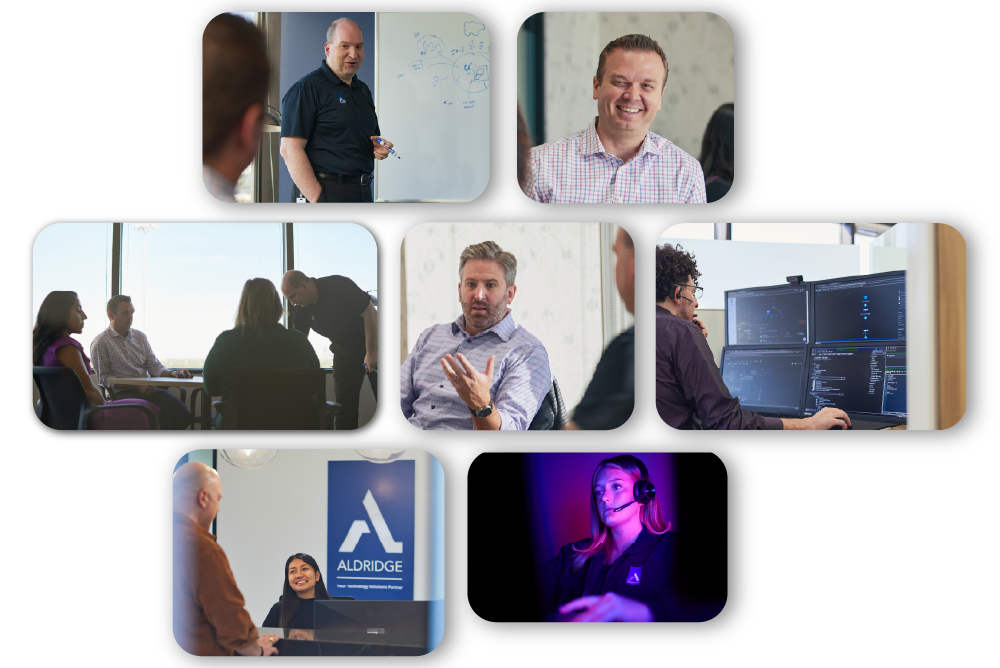The impact of artificial intelligence on businesses is undeniable. As we reflect on our journey from chalkboards to calculators and Excel, it’s evident that the nature of skills in demand has evolved.

AI’s Impact on Businesses in the Short & Long Term
Short Term: Embracing Incremental Changes

In the short term, AI introduces a series of small yet impactful changes. Users don’t necessarily have to do anything to take advantage of AI; instead, vendors are integrating AI to enhance their tools and provide AI-powered features. While AI can deliver remarkable visual results with minimal input, there is an evident requirement for tuning to achieve quality outcomes.
Short-Term Vision: Practical Integration into Everyday Tools
Everyday applications like Google Maps, text-to-speech, and voice dictation already integrate AI seamlessly. The short-term vision involves businesses understanding how to effectively utilize AI given the evolving landscape and its potential for increased efficiency.
Short-Term Challenges
Navigating Uncertainty in AI Utilization
Individuals may not fully grasp how to utilize AI effectively or establish operational processes. While vendors are actively innovating in this space, understanding how to leverage it as a differentiator for organizational benefits, enhance customer offerings, or boost operational efficiency remains a complex task.
Precision Challenges in Non-Deterministic AI
AI’s non-deterministic nature, especially in natural language processing and large language models, brings consistency challenges. Non-deterministic means that AI does not recognize a true correct answer to a question – you can ask the same question and get the same answer 95% of the time, but 5% it will be different.
Privacy Challenges
The significance of data privacy and governance cannot be overstated, especially in the current landscape where a plethora of online tools, ranging from chat GPT to Grammarly, are readily accessible. While these tools may claim to prioritize data privacy, their low entry barriers pose potential risks.
Consider a scenario where a medical professional utilizes Grammarly to review work containing patient information. By doing so, sensitive data is exposed to Grammarly. Without a subscription to a corporate plan that ensures robust data governance, privacy controls, and adherence to regulations like HIPAA, organizations risk violating confidentiality agreements. This concern extends beyond regulated industries, highlighting the imperative for a comprehensive approach to responsible AI usage and information security within organizational environments.
Skill Evolution: The Role of Prompt Engineering
The evolving skill set in the short term includes “prompt engineering,” a skill essential for formulating refined questions to extract accurate responses from AI systems. Additionally, organizations contend with data privacy and governance concerns when individuals independently use AI tools, potentially risking the exposure of sensitive information.
Mid Term: Integration into Everyday Operations

Looking to the midterm, businesses can anticipate the next wave of value with AI becoming integrated into core business applications. This evolution will move beyond ancillary functions, impacting ERPs, BI systems, and transaction processing.
Microsoft Copilot in Business Operations
Microsoft Copilot, integrated into Microsoft 365, exemplifies the potential of AI in aiding decision-making within everyday business operations. It uses historical data to predict user responses, streamlining communication and decision processes without eliminating the need for human input.
It’s crucial to emphasize that this evolution does not eliminate the human role; rather, it streamlines processes, demanding the right inputs and thoughtful consideration while offering a faster and more informed decision-making capability.
Long Term: Personalized, Persistent AI for Business

The long-term vision for AI in business involves addressing current limitations, such as session state constraints. Persistent sessions, where AI systems retain context across conversations, will become more feasible as computing and storage costs decrease.
Overcoming Session State Limitations
Long-term advancements will tackle the short attention span of AI, allowing for persistent sessions that retain contextual understanding across interactions. This eliminates the need for AI to start afresh with each new task, enabling continuous learning and refinement.
AI Expert Systems: Learning and Adapting Over Time
The long-term landscape envisions AI expert systems tailored to specific tasks, capable of continuous learning and adaptation. Businesses can manage and refine these systems over time, leading to increased efficiency and effectiveness in various domains.
The impact of AI on businesses unfolds across short, midterm, and long-term horizons. The journey of AI in the business landscape is an ongoing evolution, reshaping the way we approach tasks, make decisions, and innovate. As AI becomes a part of our professional lives, understanding its evolving role is key to unlocking its full potential and driving future success.
Watch the Full Webinar
Aldridge CIO, Chad Hiatt gives a candid update on our project to implement AI across our business. We want to share our AI journey, warts and all, because we believe that everyone who is interested in AI will benefit from the lessons that we have learned the hard way. Watch the full 2024 AI Update webinar to see the lessons learned from our AI journey.






